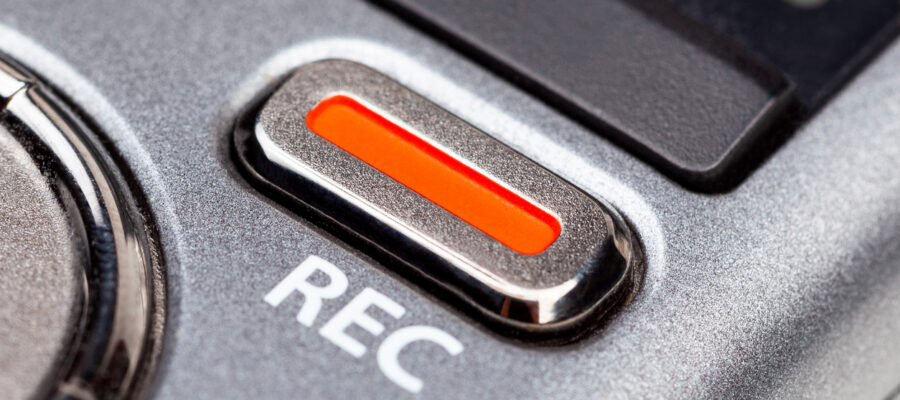A Note on Recording Interviews

There has been a lot of controversy over the last 10 years on the issue of recording interviews, particularly in areas outside of criminal investigations. I think on criminal investigations, the police have pretty well established that any significant interview is going to be recorded. But, in other parts of the investigative world like workplace investigations or regulatory investigations, there are still people who feel that recording interviews is not a great idea. I’m NOT one of them.
I think recording interviews is the gold standard. It is what we need to be doing. There are a lot of times where people can very easily say that the things that were discussed in an interview didn’t happen. They can change their story and deny or insist they said certain things. This doesn’t happen all the time, but when it does, having a recorded version of it will be the final arbiter of any kind of disagreement around what was said.
Now, over the years I’ve heard lots of excuses and reasons why you shouldn’t record interviews. Here are some big ones I hear the most:
Excuse 1: “People will be too reluctant to share information if they’re being recorded.”
I would argue that people are reluctant to share information many times, whether being recorded or not. A good interviewer will be able to get people past that issue. When you explain to people why you are recording, let them know it is for accuracy, and explain to them who’s going to hear it and what it is going to be used for. People will gain a better understanding. Explaining the reason, coupled with proper rapport-building, allows people to relax and typically be quite agreeable to the recording.
I can tell you that I have a big team of people who are doing interviews every day, and very rarely do we have somebody who refuses to the interview being recorded. If they refuse, no problem. We’re not going to make a fuss about it, we’re going to let them refuse and we will just document that they refused and go back to the old-fashioned way of doing things – taking notes and then having them review those notes and sign off on them.
One thing I will say here is that if you are interviewing and recording, you still want to be taking notes because you never know when technology will fail you, and if that happens and you have no notes it won’t be good to get to the end of a two hour interview, have no recording and no notes, and be back to square one. So always take notes regardless of whether you’re recording the interview.
Excuse 2: “People will be reluctant and hold back.”
This argument is overblown, and a good investigator will get past this issue easily.
Excuse 3: “The investigator is caught on tape too and what if the investigator said something they shouldn’t say.”
Well, my first response is don’t say something you shouldn’t say – good investigators don’t do that. But I get it, we all can make mistakes. So, if we say something that we shouldn’t have said we acknowledge it and be accountable. Is this argument against recording suggesting if it wasn’t recorded you could deny it? Where’s the integrity there? So, from my perspective, if you make a mistake that is captured on a recording deal with it, and if you are good at what you do that should rarely, if ever, happen.
Excuse 4: “It’s going to be hours of work to create all these transcripts that capture a bunch of ‘ums’ and ‘ahs’, and not all the information will be relevant.”
You don’t have to do a transcript for every recording. Sure, if the case goes to a tribunal, court, arbitration then you are going to go ahead and transcribe it, but for the other 90% plus of cases you will never need to transcribe it. You use it like you would rough notes. You take from it the relevant information, you summarize that information, and you put it in your report. If there’s ever any question, the recording is there. If you land in a more significant process like a hearing or tribunal, well no problem. You’ve got the recordings and in those circumstances you and others will be happy you do.
Now I will say this – never record without the person’s permission. Always make sure the person being interviewed has said yes I’m OK with being recorded and that you actually capture that acknowledgement on the recording.
I usually have a short conversation with the person at the outset, tell them I wish to record the interview and offer my reasons why. Then I make sure that they’re comfortable with it and start the recording. I will start off by saying something like, “Today is January 3, 2023. I am here with Mr. or Ms. or whatever the person’s preference is to be addressed (which I will have already established). They are here to talk about XYZ just for the record, can you confirm you agree to the recording of this interview?”. They agree and off we go. Before you know it, everyone forgets the recording is happening and you just conduct your interview like you normally would. Like I said, we’ve had very few issues with people not wanting to share information and be recorded.
Final Remarks
I can’t emphasize enough the importance of recording interviews. Yes, there can be arguments that might dissuade one from recording an interview. However, I would say that all those arguments are easily dealt with. Additionally, the benefits far outweigh any of the risks that people commonly associate with recording. So, record your interviews! It’s best practice in my opinion.

